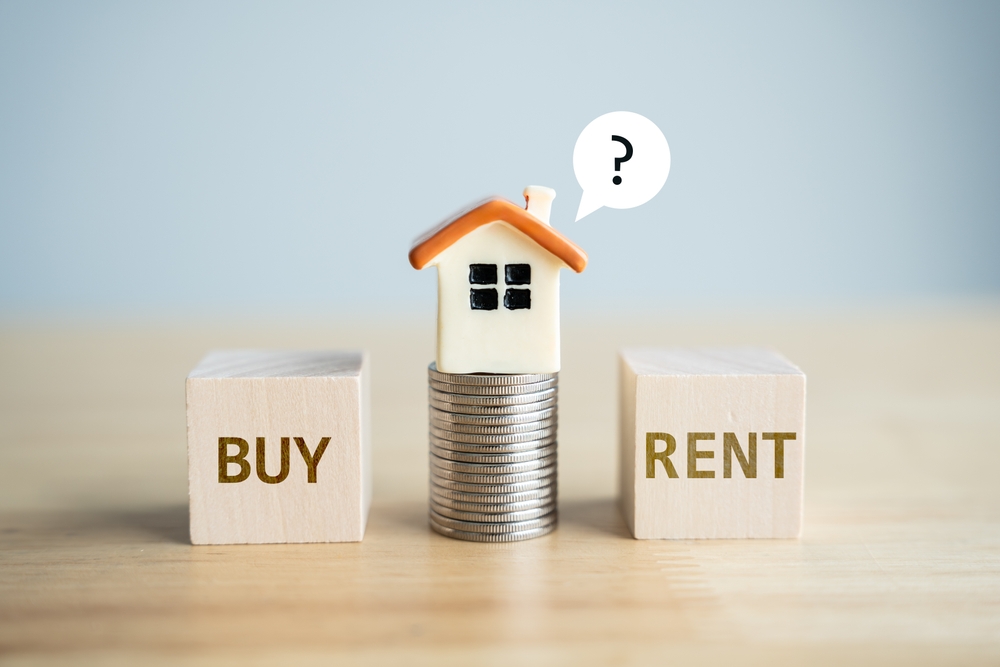Renting versus buying a home is a perennial debate that continues to perplex even the most financially astute individuals. While the decision often hinges on fundamentals such as financial readiness, career stability, and lifestyle preferences, there are several nuanced money factors people rarely consider. These often-overlooked elements can meaningfully tip the scales in favor of either renting or buying. Understanding and evaluating these factors will ensure a more comprehensive financial decision.
Equity Building and Opportunity Costs
One of the most significant benefits of buying a home is the potential for equity building. As you pay down the mortgage, your ownership stake in the property increases. Although this seems straightforward, it’s essential to consider the opportunity cost of not investing that money elsewhere. The money tied up in a down payment or monthly mortgage payment could potentially yield greater returns if invested in the stock market, businesses, or other ventures.
Real estate can be a solid long-term investment, but it is subject to market fluctuations. If property values stagnate or decline, the expected equity growth could underperform compared to other investment types. Those who prioritize flexibility and are willing to take calculated risks might prefer investing in more varied financial products over the long-term commitment of homeownership.
Maintenance and Unforeseen Expenses
A critical consideration that often tips the scale is the cost and responsibility of maintenance and repairs. Homeowners are responsible for everything from minor repairs to major structural issues. These costs can be unpredictable and significant. Furthermore, property taxes and homeowners’ insurance must be factored in, both of which can increase over time, adding to the financial burden.
Renters, in contrast, typically have maintenance included in their monthly payments. This is a notable advantage for individuals who prefer predictable expenses and fewer responsibilities. Renting offers financial predictability, often an underestimated but valuable feature for those not wanting to handle the stress of unexpected home expenses.
Mobility and Flexibility
The implications of job mobility and lifestyle preferences are substantial factors that significantly influence the buy-versus-rent decision. Buying a home ties you to a specific location, which might not align with career trajectories that involve relocation. For professions requiring frequent moves or those still establishing their career path, renting offers flexibility that buying cannot, making it a more strategic choice financially.
For homeowners, the process of selling a property involves closing costs, real estate agent commissions, and potential capital gains taxes, all of which can eat into any accrued equity. Conversely, renters can more seamlessly transition between different living situations as personal or professional circumstances change.
Tax Considerations
Buying a home traditionally comes with certain tax benefits, such as the ability to deduct mortgage interest payments and property taxes on your federal income tax return. However, the tax overhaul and resulting cap on state and local tax deductions may diminish these advantages for some. Furthermore, the standard deduction now exceeds what many homeowners can deduct with an itemized return, potentially reducing the tax incentives associated with homeownership.
On the other side, renters do not benefit directly from tax credits related to their housing situation. However, some may find that, after considering opportunity costs and alternatives, renting allows for more strategic financial planning. Placing money into diverse investment accounts could represent a more tax-efficient strategy for certain financial profiles.
Market Conditions and Timing
The condition of the housing market at the time of purchase or rental can dramatically influence the financial prudence of each option. Buyers who enter the market during a high point may face higher prices that could take years to recover if a downturn follows. This includes the possibility of carrying underwater mortgages, where the property’s current market value falls below the outstanding balance on the mortgage.
Renters, meanwhile, can capitalize on real estate downturns by maintaining lower housing expenses, waiting for a market correction, and entering homeownership when deals become more favorable. In a high-interest rate environment, monthly mortgage payments can be significantly higher, making renting a more economically viable option until rates decrease.
Personal Financial Health
Your personal financial health plays a critical role in determining whether to rent or buy. Buying a home typically requires a sizable down payment, closing costs, and reserves for ongoing maintenance. For many, this means liquidating investments or depleting savings, which could compromise financial stability.
Alternatively, renting requires a smaller upfront financial commitment and offers the chance to allocate remaining funds toward other financial goals, such as retirement savings, starting a business, or further education. It’s crucial for individuals to perform a comprehensive financial assessment, considering everything from debt load to long-term savings objectives, rather than viewing homeownership as a default life goal.
Inflation Protection
Owning a home can serve as a hedge against inflation, as fixed-rate mortgage payments remain constant while the property’s value and rental prices typically increase over time. This constancy can offer peace of mind and financial predictability in a world where living costs gradually rise.
Renters, conversely, face rent increases each year, transferring inflation risk back onto their shoulders. While the control over rising costs is limited when renting, the flexibility it affords can still present its own advantages.
Pride of Ownership
Although somewhat intangible, the pride of ownership is a factor with financial implications. It includes the freedom to modify your living space and landscape, a degree of stability, and a place to call your own. For some, these aspects are non-negotiable and worth the financial trade-offs.
However, these emotional benefits come at a cost. They can lead homeowners to over-improve a property beyond what is financially wise, invested more emotionally than prudentially. Additionally, there is the potential risk of liquidity being tied up if the need to access large sums quickly arises.
Alternative Lifestyle Options
Societal norms have shifted significantly, and more people are exploring alternative living arrangements that impact the rent versus buy debate. Cohousing communities, co-living spaces, tiny homes, and other non-traditional housing solutions are becoming more prevalent and can provide appealing fiscal and lifestyle benefits.
These options often emphasize shared costs, sustainable living, and community interaction, aligning well with the values of those who prioritize experiences over material possessions. Whether through reduced living costs, environmental impact, or emphasis on a minimal lifestyle, these alternatives can redefine what it means to “own” a home in a financial sense.
Making a decision between renting and buying is laden with complexities that go beyond simple math. A nuanced understanding of overlooked financial factors, such as opportunity costs, tax implications, and personal financial health, among others, will provide a clearer path. It is essential to make this decision with not only the present in mind but also long-term implications and life goals, understanding that the best choice is often highly personal and influenced by multiple dynamic factors.



